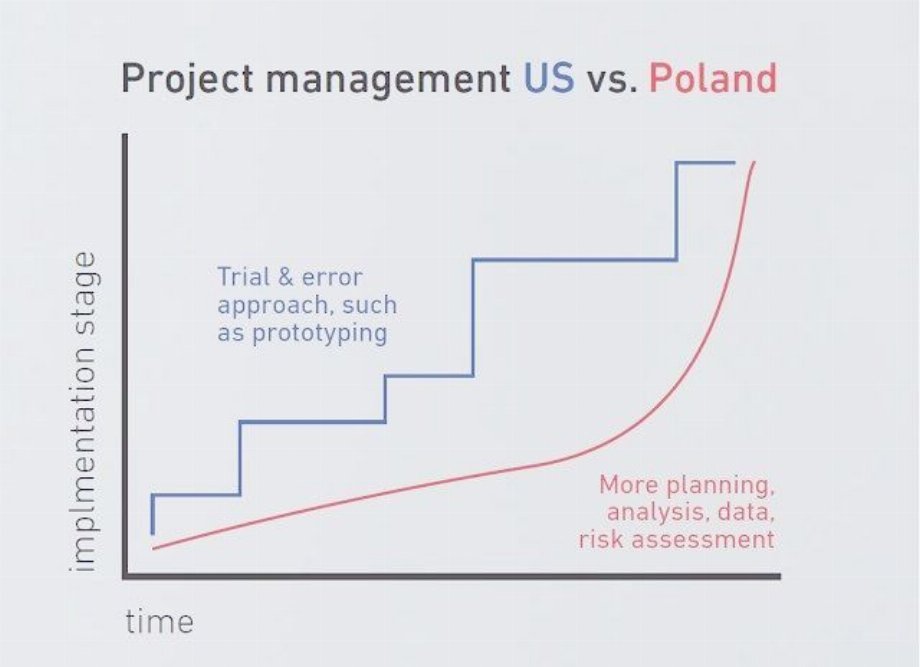“What should I do?”
I asked him. “I have
traveled around Sweden, worked hard, and it’s not working. I show them what to
do, I’ve prepared nice presentation slides, I have designed handy instruction
books outlining the best hints, I offer my help, and it does not seem to be working.”
My boss smiles and says calmly: “Sit down, and I will share some wisdom with
you.” In that meeting I learned possibly the most important thing about dealing
with a new environment. The lesson boils down to what Steven Covey once said:
“Seek first to understand, then to be understood.” It took me some time to
learn that there can even be significant cultural differences between two
Scandinavian countries. It took even more time to understand what was causing
the cultural clash. Swedish business culture is known for being driven by
consensus-based decision taking. As a Danish person I was not used to it and
misread that as indecisiveness, which caused a lot of frustration in the
beginning. But my early mishaps cannot be explained by cultural differences
alone. Much more than that it was about my inexperience and lack of earlier
direction which reduced the impact that I had at the beginning of my
expatriation in Sweden. But after getting that advice from my boss, things
started to turn around and my six-month stay was extended to two years as the
cooperation with the Swedish colleagues developed very positively. The
experience in Sweden helped me tremendously when I moved to Poland in 2000
following another acquisition, then to Ireland in 2006 after yet another
merger, before returning to Poland in 2011. It also helped me in my personal
life, being married to a Polish woman. National cultures definitely have a lot
of impact on how we act, but there are many other aspects to consider: education,
gender, social environment, work experience and hobbies are all elements that
shape our beliefs and behavior. An 18-year-old Dane from Copenhagen probably has
more in common with an 18-year-old Varsovian than with his own father. Swedish
business culture is known for being driven by consensus-based decision taking
VARYING APPROACHES
Business is
global, customer demand changes swiftly, new market entrants appear every day
and technologies redefine job functions. As business leaders we need to make
sure we can respond to such an environment by ensuring that we see what is
going on and knowing how to deal with that. That requires cultural diversity
across all levels of the organization. We need to understand the culture of the
new market place when we want to conquer a new market, be it a new country, or
a new customer segment. What client behavior can we expect in this market
place? Do they pay their invoices on time? What kind of marketing campaigns do
they react to? How do they respond to uncertainty? The latter is a common cause
of cultural clashes in Poland, as Poles have an exceptionally high aversion to
the unknown. According to Geert Hofstede’s findings, Poland scores 93 (out of
100) on the “uncertainty avoidance” scale, while the US scores 46 (www.geerthofstede.com).
This can have a great effect on how projects are approached in Poland vs. the
US. Poles devote a lot more time to the planning and analysis stage. They
analyze data and potential risk much more thoroughly in the early stages of a
project in order to allow for a smooth and rapid implementation once the
project is greenlit. Americans, on the other hand, are very comfortable with
the “trial and error” approach. They see no problem in taking a step back and
re-evaluating the situation if a mistake has been made. They are less discouraged
by failures. While the Polish approach may seem too restrained and not daring
enough to Americans, the US approach may
easily be misconstrued as chaotic and misguided. When starting a project, we
need to ensure that the necessary mix of experiences is in place. The person responsible
for the project must make room for a discussion about competence and
experience, including national and cultural differences, but also personality traits.
This discussion will not only avert a lot of potential frustration but also
increase efficiencies and reduce risks. Without this discussion upfront, an
American participant may easily become discouraged when working on a Polish-led
project. When we move services or production to another country, we need to
understand the culture of the country in order to be ready to deal with
decision making, goal setting, feedback, conflict management, empowerment, etc.
We also need to understand the individuals who we will work with, as their
personalities may differ greatly from the stereotypes we’ve been taught to
ascribe to the country’s culture.
WHAT TO DO?
First and foremost, we need to understand the
importance of dealing with cultural differences, which is unavoidable when we
start to deal with new people. We should take advantage of the diversity and
talk openly about it. We should act on it by ensuring cultural diversity across
the organization and making sure that decisions are taken and processes are
designed with this in mind. External consultants can assist in the stage of
creating the necessary understanding and implementation in the organization.
Personality and behavioral analysis can be helpful both in the process of understanding
the issue and later on when we start making decisions that will ensure that
instead of being hindered by cultural diversity, we can capitalize on it.
















